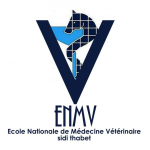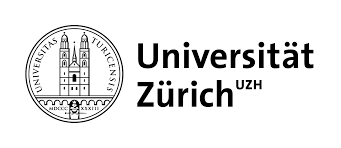Small ruminant production systems are a major component of the dairy and meat sector in the Mediterranean areas being frequently the only possible enterprises in less favoured areas, unsuitable for growing crops, playing a substantial role in the livelihood of farmers in developing countries. Furthermore, small ruminant farming systems represent one of the most important agricultural activity connected to the utilization of marginal lands, with prevalence of pastoral system, low level of mechanization, and production of typical products, mainly cheese (Caroprese et al., 2015). Ensuring the sustainability of small ruminant livestock farming systems in relation to global concerns about climate change, population dynamics and quality of agrosystem services provided to society, as well as their trade-off is fundamental (Bernuès et al., 2011). Parasites are ubiquitous in such systems and have been identified as the main constraint affecting small ruminants’ production, health and welfare. Grazing sheep are frequently exposed to multiple parasites and the early diagnosis of these infections is of pivotal importance to plan sustainable and low-impact control and treatment strategies (Ruano et al., 2017). Among parasitic infections, cystic
echinococcosis (CE) might be considered one of the most important zoonotic diseases of grazing sheep in the Mediterranean area, associated to serious economic and animal health repercussions due to reduced yield and quality of meat, milk and wool, reduced birth rate, delayed performance and growth, as well as post-mortem rejections at slaughtering (Torgerson, 2003). Cystic echinococcosis, caused by the larval stages of the small tapeworm Echinococcus granulosus, is a zoonotic parasitic disease of veterinary and public health importance. The life cycle of E. granulosus includes dogs and other canids as the definitive hosts of the adult parasite and livestock (mainly sheep) and humans as intermediate hosts. CE has a worldwide distribution but exhibits the highest prevalence in communities where pastoral activities predominate, as the Mediterranean areas (Deplazes et al., 2017). Climatic changes (e.g. global warming) may influence the epidemiology of CE, due to their direct effect on the
survival and the viability or infectivity of eggs, released in the environment by the dog, and an indirect impact on sheep, through an increased exposure to the parasite (Atkinson et al., 2013). Changes in soil moisture/humidity may increase the number of viable eggs in the environment, thereby amplifying infection pressure in susceptible intermediate hosts. Furthermore, climate changes will contribute to the transmission of echinococcosis mediated by changes in animal population dynamics due to improvements in quality and abundance of vegetation (Atkinson et al., 2013). Therefore, these changes will have a direct and indirect impact on parasites, hosts and farm management practices and, also implications for animal health and welfare (Skuce et al., 2013). High prevalence of CE occurs predominantly in the Mediterranean countries with large number of grazing
sheep. In southern Europe, epidemiological surveys conducted in different regions of central-southern Italy showed high values of prevalence up to 75% in sheep and 6% in dogs (Deplazes et al., 2017) whereas, in Greece, the overall prevalence in sheep is 30.4-53.8% (Christodoulopoulos et al., 2008; Chaligiannis et al., 2015) and 50.4% in sheepdogs (Sotiraki et al., 2003). The same parasitological scenario is present in North Africa, where the prevalence of E. granulosus infections in Algeria ranges from 17.5% to 78.0% in sheep (Hamrat et al., 2011; Ouchene et al., 2014) and from 15.5% to 42.0% in dogs (Bentounsi et al., 2009). Similarly, in Tunisia, CE prevalence ranges from 12.5 to 53.0% in sheep (Lahmar et al., 1999, 2007, 2013) and is reported above 20% in dogs (Deplazes et al., 2017). From a control perspective the main target for intervention is the definitive host (dogs) with the aim to reduce or eliminate adult worm burdens. The anticestode drug praziquantel (PZQ) provides an excellent cestocidal deworming tool for dogs. Targeting livestock to prevent infection (anti-oncosphere vaccination) could also be effective
especially in conjunction with slaughter inspection (liver/lungs condemnation) and husbandry practices that reduce numbers of older sheep (have the greatest viable metacestode burden). Simulation models for combined deworming of dogs and vaccination of sheep have indicated an improved efficacy (Craig et al., 2017). Historically most of the studies conducted on epidemiology and control of CE in the Mediterranean area, however, have been performed separately targeting either humans or specific animal species, with scarce or no input in between. Thus, many results obtained, and tools created remained isolated within each country, instead of incorporating them, increasing so the efficiency of CE control programmes. Consequently, despite such control initiatives that have been implemented in selected countries or regions (Craig et al., 2015), CE still remains a
problem in the Mediterranean areas with a high rate of infection. Crucial for an effective control program is also to obtain an accurate measure of infection rates of CE in a selected area, in order to design and launch active and passive surveillance systems and to observe and quantify the progress of the control program. Thus, advances in knowledge and development of new control tools for CE including new diagnostics for the definitive and intermediate hosts provide an excellent prospect for improved control program. Unfortunately, according to DISCONTOOLS (https://www.discontools.eu/), many critical gaps
have been identified in commercial diagnostic kits available worldwide. These could be summarized as follows: (i) Definitive hosts: lack in specificity of coproantigen detection, expensive copro-DNA isolation, more specific monoclonal antibodies needed; (ii) Intermediate hosts: lack of sensitivity and specificity of antibody detection, specific antigen detection should be developed. To date, advances in diagnosis of echinococcosis in definitive hosts have been made (coproELISA, coproPCR) resulting in a huge impact in epidemiological studies and in surveillance of control (Craig et al., 2015). Unfortunately, relatively little research has been directed towards the development of new tools for the in vivo diagnosis of CE in sheep, where diagnosis at post-mortem still remains the most reliable option. One of the disadvantages of this method is the limitation in detecting growing cysts in young animals, which are the ones of greatest interest for surveillance in a control program. The availability of new tools for the early diagnosis of CE would greatly improve surveillance in livestock, unfortunately, serological tests can give crossreactions
in animals infected with other taeniid cestodes (including Taenia hydatigena or Taenia ovis) and, therefore, have poor diagnostic value at the individual level (Craig et al., 2017). Instead, ultrasonography has been used with good specificity and sensibility values, but, actually, it can be performed only in the liver (https://www.discontools.eu/). As a consequence, control programs, which are mainly based on surveillance of livestock, surveillance and treatment of shepherd dogs appear to be late to carry out (Lembo et al., 2013).






















